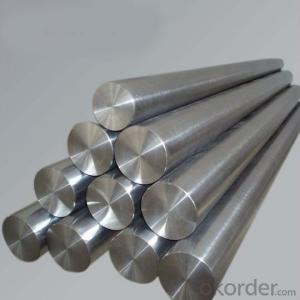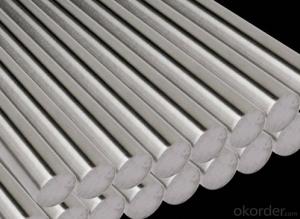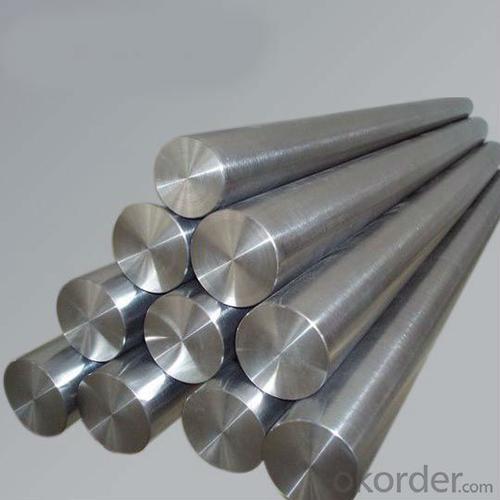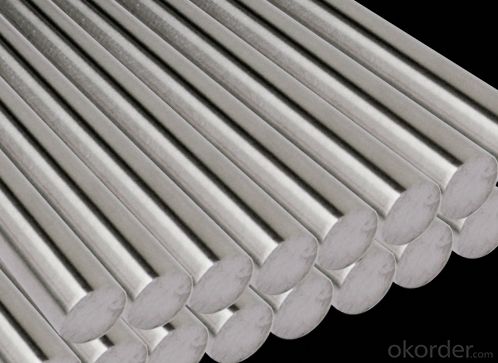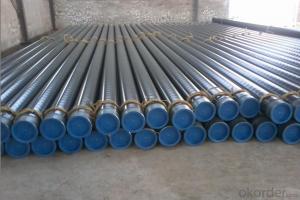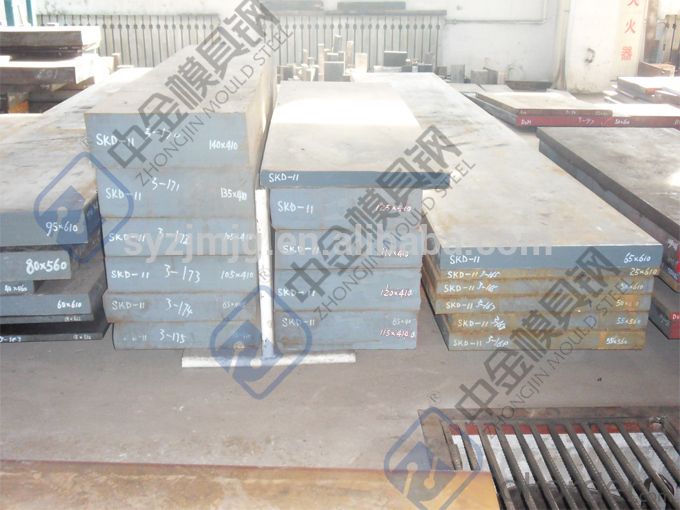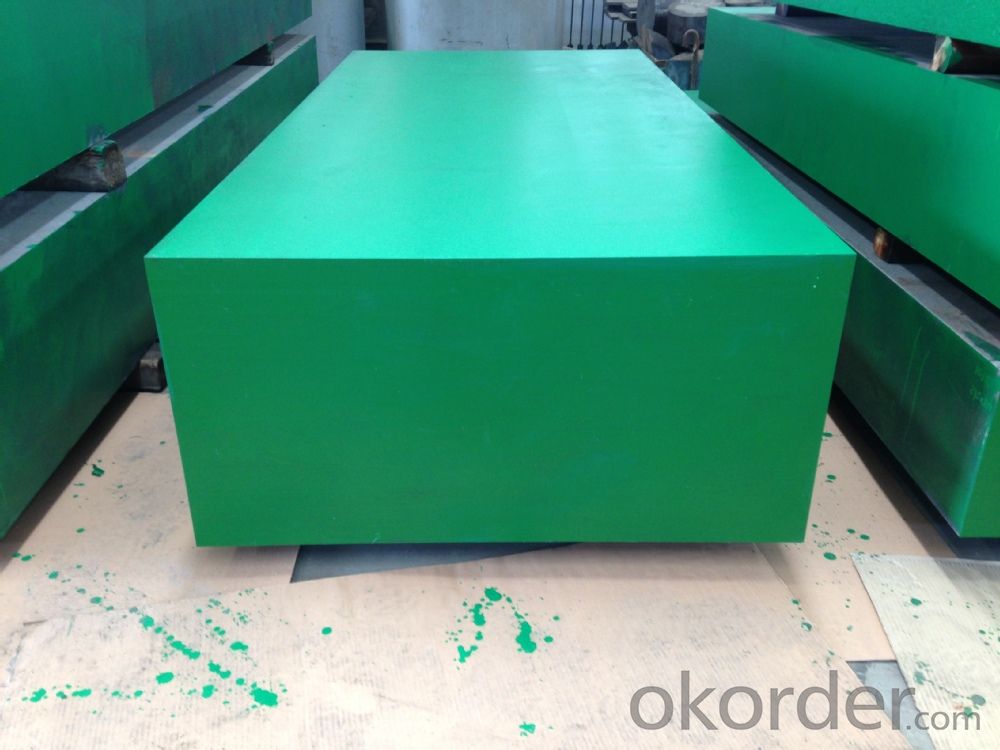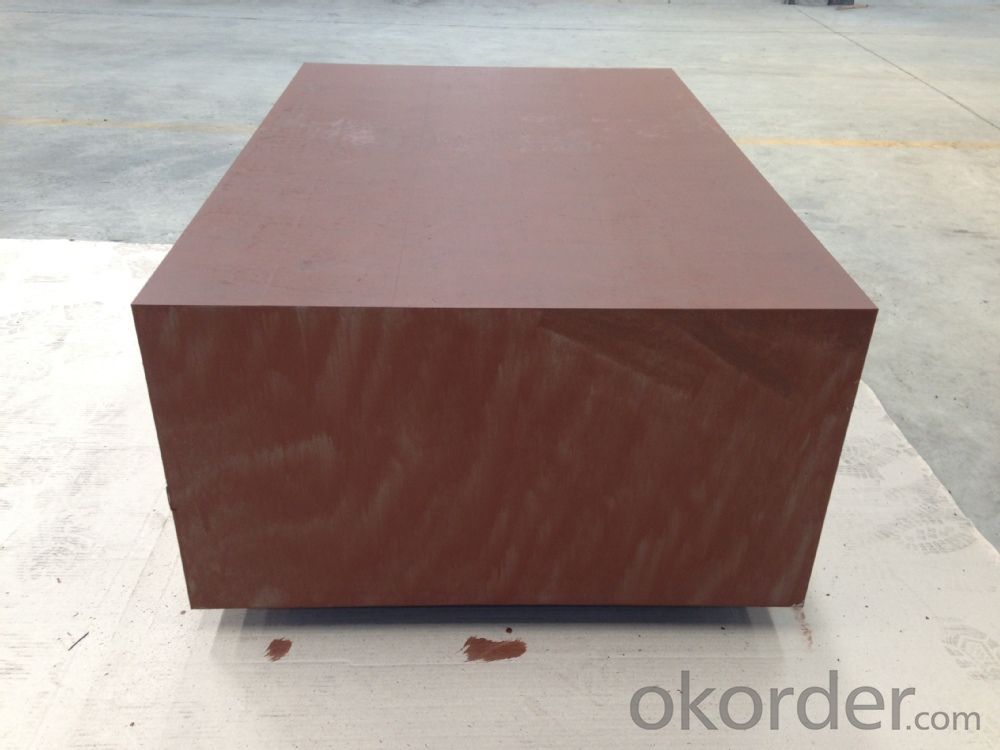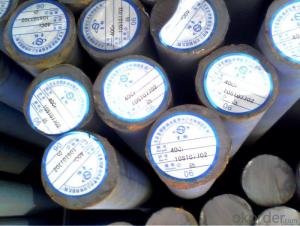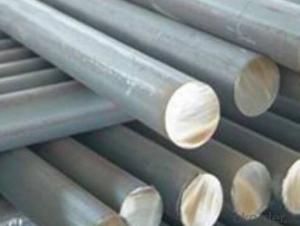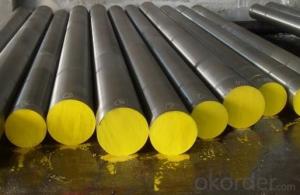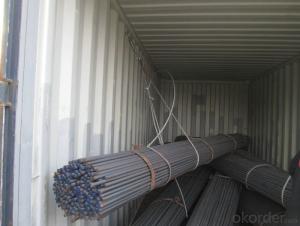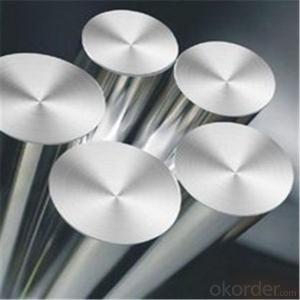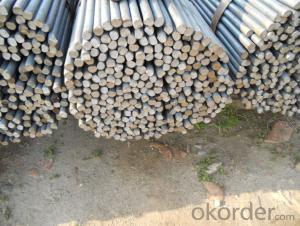M2/6542/SKH9/1.3343 Round Bar Steel with Factory Price
- Loading Port:
- Dalian
- Payment Terms:
- TT OR LC
- Min Order Qty:
- 5 m.t.
- Supply Capability:
- 1000 m.t./month
OKorder Service Pledge
OKorder Financial Service
You Might Also Like
Specification
M2/6542/SKH9/1.3343 Round Bar Steel with Factory Price
Specifications 1.3343 steel
1.Stainless steel plate
2.ISO9001:2008 certificate
3.Competive price and Best quality
4.On-time delivery
Product Description
Chemical Composition(GB)%
Standard | C | Si | Mn | P | S | Cr | W | Mo | V |
W6Mo5Cr4V2 | 0.55-0.65 | ≤0.40 | ≤0.60 | ≤0.030 | ≤0.020 | 3.70-4.30 | 6.00-7.00 | 4.50-5.50 | 1.70-1.10 |
M2 | 0.78-0.88 | 0.20-0.45 | 0.15-0.40 | ≤0.030 | ≤0.030 | 3.75-4.50 | 5.50-6.75 | 4.50-5.50 | 1.75-2.20 |
Tool Steel | GB(China) | ASTM(USA) | JIS(Japan) | DIN(Germany) |
High Speed | W6Mo5Cr4V2 | M2 | SKH9 | 1.3343 |
Cold work | T10A | W110 | SK3 | 1.1645 |
9CrWMn | O1 | SKS31 | 1.251 | |
Cr8 | - | - | - | |
Cr12MoV | D3 | SKD11 | 1.2601 | |
Cr12Mo1V1 | D2 | SKD11 | 1.2379 | |
Cr8Mo2SiV | - | DC53 | - | |
Cr12 | D3 | SKD1 | 1.2080 | |
GCr15 | 52100 | SUJ2 | 100Cr6 | |
40Cr | 5140 | SCr440 | 1.7035 | |
Hot Work | 4Cr5MoSiV1 | H13 | SKD61 | 1.2344 |
5CrMnMo | 6G | SKT3 | 1.2311 | |
5CrNiMo | L6 | SKT4 | 1.2713 | |
5CrNiMoV | - | - | 1.2714 | |
35CrMo | - | SCM435 | 1.7220 | |
42CrMo | 4140 | SCM440 | 1.7225 | |
Plastic | 3Cr2Mo | P20 | PDS5 | 1.2311 |
3Cr2MnNiMo | P20+Ni | PDS5S | 1.2738 | |
4Cr13 | 420 | SUS420J2 | 1.4034 | |
10Ni3MnCuAl | P21 | NAK80 | - | |
2Cr13 | 410 | SUS410 | 1.4021 | |
Mild Carbon | 45# | 1045 | S45C | 1.1191 |
hot working die steel plastic mould steel
FAQ
1.Who are we?
We are a professional manufacturer in alloy steel since 2006.
2.What is the minimum order quantity?
Our minimum order is 100 pieces or 3 metric tons.
3.What is the production lead time?
Usually the lead time is 20-30 days after order be confirmed.
But for the exact date,please check with our sales team.
4.Why choose us?
We can offer the best quality and competive price.
- Q: Can steel pipes be used for underground gas distribution?
- Yes, steel pipes can be used for underground gas distribution. Steel pipes are commonly utilized in the gas industry due to their high strength, durability, and resistance to corrosion. They are capable of withstanding the pressure and stress associated with gas distribution systems. Additionally, steel pipes have been proven to be reliable and safe for transporting natural gas underground. However, it is essential to ensure that the steel pipes are properly coated and protected against corrosion to maintain their integrity and longevity. Regular inspections and maintenance are also necessary to identify and address any potential issues that may arise.
- Q: What is the difference between internal and external coating of steel pipes?
- The difference between internal and external coating of steel pipes lies in their purpose and application. Internal coating is applied to the inner surface of the pipe to protect it from corrosion, enhance flow efficiency, and prevent contamination of transported fluids. It is commonly used in industries such as oil and gas, water treatment, and chemical processing. On the other hand, external coating is applied to the outer surface of the pipe to protect it from corrosion caused by environmental factors such as moisture, chemicals, and physical damage. It is typically used in underground or above-ground applications, including pipelines, structural steel, and water distribution systems.
- Q: How are steel pipes used in the construction of geothermal power plants?
- Steel pipes are used in geothermal power plants for various purposes, including the transport of geothermal fluids from the underground reservoir to the surface, the distribution of these fluids within the plant, and the construction of the plant's infrastructure, such as the well casing and steam piping.
- Q: How are steel pipes protected during transportation and storage?
- Steel pipes are typically protected during transportation and storage through various measures. These include using protective coatings like oil or paint to prevent corrosion, using proper packaging materials such as plastic caps or wrapping, securing them with straps or bands to prevent movement and damage, and storing them in covered or enclosed areas to shield them from environmental elements like moisture, sunlight, or extreme temperatures.
- Q: What are the different methods of insulation for steel pipes?
- There are several methods of insulation for steel pipes, including foam insulation, fiberglass insulation, mineral wool insulation, and polyurethane insulation. These methods help to prevent heat loss or gain, protect against corrosion, and reduce condensation on the pipes.
- Q: What are the safety considerations while handling steel pipes?
- When handling steel pipes, some key safety considerations include wearing appropriate personal protective equipment (PPE) such as gloves, safety glasses, and steel-toe boots to protect against potential injuries. It is important to be cautious of the weight and size of the pipes, using proper lifting techniques and equipment to prevent strains or accidents. Additionally, workers should be mindful of the sharp edges and potential for cuts or punctures, ensuring they have a clear and organized workspace to minimize the risk of tripping or falling. Regular inspections of the pipes for any damages or defects are also crucial to prevent accidents and maintain a safe working environment.
- Q: What are the safety precautions to follow when working with steel pipes?
- When working with steel pipes, it is important to follow several safety precautions to ensure the well-being of yourself and those around you. These precautions include: 1. Personal Protective Equipment (PPE): Always wear the appropriate PPE when working with steel pipes. This includes safety glasses, gloves, steel-toed boots, and a hard hat. PPE helps protect you from potential hazards such as flying debris, falling objects, and sharp edges. 2. Proper Lifting Techniques: Steel pipes can be heavy and awkward to handle. Always use proper lifting techniques to avoid strain or injury. Bend your knees, keep your back straight, and use your legs to lift the pipes. If a pipe is too heavy to lift on your own, ask for assistance or use mechanical lifting equipment. 3. Secure Working Area: Ensure that the work area is clean, organized, and free from tripping hazards. Keep the floor clear of tools, debris, and other obstructions that may cause accidents. Additionally, barricade or cordon off the work area to prevent unauthorized access and ensure the safety of others. 4. Use Proper Tools and Equipment: Use the right tools and equipment for the job. This includes using wrenches, pipe cutters, and clamps designed specifically for steel pipes. Using improper tools can lead to accidents, damage to the pipes, or faulty connections. 5. Proper Storage: Store steel pipes in a secure and organized manner to prevent them from falling or rolling onto someone. Stack the pipes in a stable position, and use racks or supports to ensure they are not at risk of toppling over. 6. Secure Connections: When joining steel pipes, ensure that the connections are properly secured. This includes using appropriate fittings, tight fasteners, and following the recommended torque specifications. Loose or improperly secured connections can result in leaks, bursts, or other failures. 7. Proper Ventilation: If working in an enclosed space, ensure adequate ventilation to prevent the buildup of harmful gases or fumes. Welding or cutting steel pipes can release hazardous gases, so make sure the area is properly ventilated or use respiratory protection if necessary. 8. Fire Safety: Steel pipes can become extremely hot during welding or cutting processes. Have fire extinguishers readily available and know how to use them. Clear any flammable materials from the work area and be cautious of sparks or open flames. 9. Regular Inspections: Regularly inspect steel pipes for signs of damage, such as cracks, rust, or degradation. Replace any damaged or compromised pipes to avoid potential failures or accidents. By following these safety precautions, you can minimize the risks associated with working with steel pipes and ensure a safe working environment. Remember, safety should always be the top priority.
- Q: Can steel pipes be used for transporting chemicals?
- Yes, steel pipes can be used for transporting chemicals. Steel pipes are known for their high strength and durability, making them suitable for handling various chemicals, including corrosive substances. Additionally, steel pipes can withstand high pressure and temperature conditions, ensuring the safe transportation of chemicals. However, it is essential to select the appropriate grade of steel and implement proper coating or lining to prevent chemical reactions or corrosion that may compromise the integrity of the pipes.
- Q: Can steel pipes be used for the construction of dams?
- Yes, steel pipes can be used for the construction of dams. Steel pipes are commonly used in dam construction for various purposes such as intake and outlet structures, penstocks, and piping systems for transporting water. Steel pipes offer high strength, durability, and resistance to corrosion, making them suitable for withstanding the water pressure and environmental conditions in dam projects.
- Q: What is the impact resistance of steel pipes?
- Steel pipes have high impact resistance, meaning they can withstand significant external forces without fracturing or breaking. This makes them highly durable and suitable for various applications, especially in industries where they are subjected to heavy loads or potential impacts.
Send your message to us
M2/6542/SKH9/1.3343 Round Bar Steel with Factory Price
- Loading Port:
- Dalian
- Payment Terms:
- TT OR LC
- Min Order Qty:
- 5 m.t.
- Supply Capability:
- 1000 m.t./month
OKorder Service Pledge
OKorder Financial Service
Similar products
Hot products
Hot Searches
Related keywords
